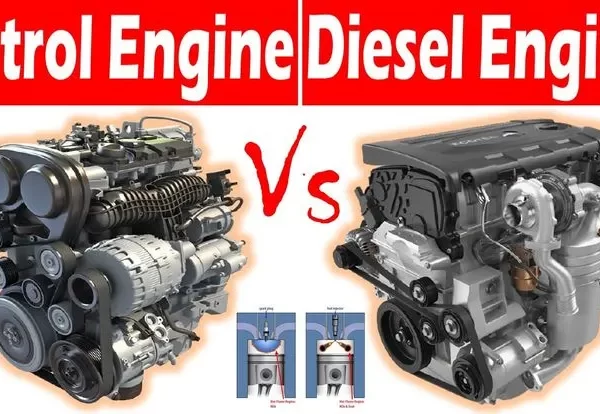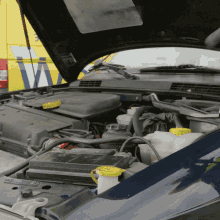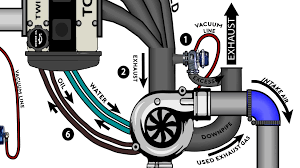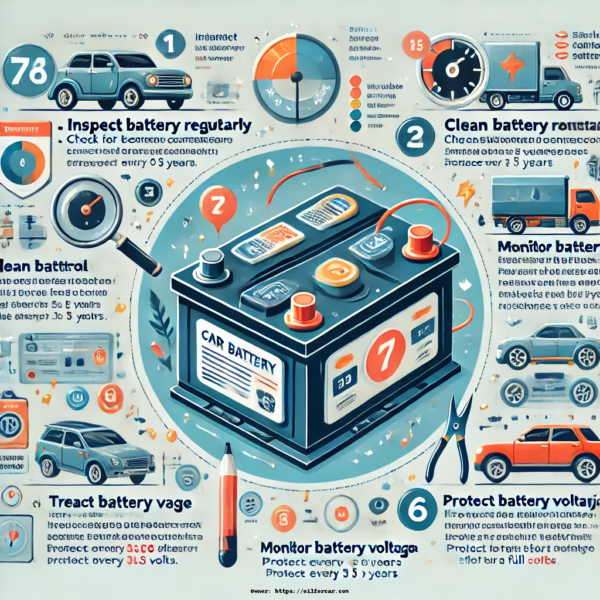Auto mechanics, also called automotive service technicians, are professionals who maintain and repair vehicles. If you own a car, understanding their role can help you care for your vehicle better. This knowledge can save you time, money, and even prevent major problems.
What Does an Auto Mechanic Do?
An auto mechanic, also known as an automotive technician, is responsible for keeping vehicles in good working condition. Their primary role is to diagnose, repair, and maintain cars to ensure they run smoothly and safely. Mechanics work with various car systems, including engines, brakes, electrical systems, and more. Let’s break down what an auto mechanic does in simple terms:
Diagnosing Problems
One of the main tasks of an auto mechanic is finding out what’s wrong with a car. When a vehicle has issues, the mechanic uses diagnostic tools like scanners or performs physical inspections to determine the root cause. They may use computers to read error codes from the car’s onboard system. Once they know what’s wrong, they can plan the right repairs.
Imagine you hear a strange noise when you start your car. The mechanic listens to the sound, checks the engine, and runs tests to figure out the problem. After that, they’ll let you know what needs fixing.
Repairing or Replacing Parts
Once the problem is identified, auto mechanics either repair the faulty parts or replace them. For example, they might fix a broken brake pad, replace a dead battery, or install a new engine component. Mechanics must be skilled in handling both small repairs and major overhauls. Sometimes, parts wear out over time, and replacing them is necessary for safety.
Key Parts They Handle:
- Brakes
- Engines
- Suspensions
- Electrical systems
Performing Routine Maintenance
Another critical role of a mechanic is preventive maintenance. Regular maintenance helps prevent major issues before they happen. This includes oil changes, tire rotations, brake inspections, and fluid refills. Routine care keeps your car running efficiently and avoids costly breakdowns later.
Common Maintenance Tasks:
- Oil changes
- Filter replacements
- Tire checks
For instance, during a routine visit, a mechanic might check the car’s oil level and replace the old oil to keep the engine running smoothly.
Providing Expert Advice
Mechanics not only fix cars but also offer valuable advice to help you avoid future problems. They might suggest the best type of oil for your car, warn you about worn-out tires, or recommend when to replace your battery. This advice can save you money and keep your car in good condition for longer.
Pro Tip:
If you hear a new sound or notice something unusual, don’t wait until it gets worse. Ask your mechanic for advice right away.
Specialized Auto Mechanics
While some mechanics handle general repairs, others specialize in specific areas like engines, transmissions, or electrical systems. These specialists have deeper knowledge in their field, which can be beneficial for solving complex problems.
Types of Specialized Mechanics:
- Transmission specialists
- Engine experts
- HVAC (Heating, Ventilation, Air Conditioning) mechanics
Certifications and Training
To be a skilled mechanic, training and certification are essential. Many mechanics hold certifications like ASE (Automotive Service Excellence), which proves they are knowledgeable and capable in their field. Continuous training also helps mechanics keep up with the latest car technologies, as vehicles today have more advanced electronics than ever before.
Tools Auto Mechanics Use
Mechanics use various tools and technology to get the job done. From wrenches to complex computer diagnostics, these tools help them perform repairs efficiently.
Essential Tools:
- Wrenches and screwdrivers
- Diagnostic scanners
- Torque wrenches
In summary, auto mechanics play a vital role in keeping our cars safe and running well. They diagnose, repair, maintain, and advise. Whether it’s fixing a small issue or preventing a major breakdown,

Specializations in Auto Mechanics
Auto mechanics can have various areas of specialization, allowing them to focus on specific systems or components of a vehicle. Understanding these specializations can help you choose the right mechanic for your car, especially when dealing with complex problems.
1. General Auto Mechanics
These mechanics have broad knowledge across all the systems in a vehicle. They are skilled in diagnosing and repairing a wide range of issues. General auto mechanics handle routine services like:
- Oil changes
- Brake inspections
- Tire rotations
They are ideal for regular maintenance and minor repairs. Their versatility allows them to work on many makes and models. However, when dealing with specific or complicated problems, a specialist may be more suitable.
2. Engine Specialists
The engine is the heart of any vehicle. Engine specialists focus on diagnosing, repairing, or rebuilding engines. They work on problems like:
- Misfiring or knocking sounds
- Overheating
- Loss of power
Engine issues can be very technical, requiring deep knowledge of how each part interacts. In my experience as an expert in Toyota vehicles, I’ve seen that early detection of engine problems saves you from costly repairs.
3. Transmission Technicians
Transmissions are intricate, whether manual or automatic. A transmission technician specializes in:
- Transmission fluid changes
- Gear shifting issues
- Clutch repairs
Transmission work requires precision and expertise. The components are complex and any mistake can worsen the problem. As a tip, always seek a certified transmission expert when you notice problems with shifting or slipping gears.
4. Brake Technicians
Brakes are a critical safety component. Brake technicians focus on:
- Brake pad replacements
- Rotor resurfacing or replacement
- Brake fluid checks
Since worn-out brakes can lead to accidents, having a specialist inspect and maintain them is essential. In my years working at the dealership, I’ve often advised customers to never delay brake checks if they hear grinding or squealing sounds.
5. HVAC (Heating, Ventilation, and Air Conditioning) Specialists
If your car’s climate control system is malfunctioning, you need an HVAC specialist. They handle:
- Air conditioning recharges
- Heater repairs
- Ventilation system checks
Proper HVAC maintenance ensures comfort and can prevent engine overheating. I’ve encountered many drivers who overlook this, only to face bigger problems in extreme weather.
6. Electrical System Experts
Modern vehicles rely heavily on electrical systems. Electrical experts are trained to fix issues related to:
- Wiring problems
- Battery issues
- Faulty alternators
A car’s electrical system can be challenging to troubleshoot. It’s often not about replacing parts, but understanding how these systems communicate. Electrical problems require specific diagnostic tools, so it’s always a good idea to seek a specialist.
7. Suspension and Steering Specialists
Suspension and steering issues affect a vehicle’s handling and comfort. Specialists in this area work on:
- Shock absorbers
- Struts
- Tie rods and ball joints
I’ve often seen how worn-out suspension components make driving uncomfortable and unsafe. If your car feels bumpy or the steering wheel shakes, it’s time to see a suspension specialist.
8. Exhaust System Experts
An exhaust system keeps your car running quietly and efficiently. Exhaust specialists focus on:
- Muffler replacements
- Fixing leaks
- Catalytic converter issues
A damaged exhaust can increase emissions and reduce fuel efficiency. Regular inspections by an exhaust specialist help ensure your car stays eco-friendly and fuel-efficient.
Each specialization in auto mechanics requires detailed knowledge and specific tools. Knowing the different areas of expertise ensures you choose the right mechanic for your vehicle’s issue. Whether it’s routine maintenance or a major repair, understanding these specialties can save you time and money while keeping your car in optimal condition.
Here’s a tabulated version of the Specializations in Auto Mechanics for better readability:
| Specialization | Focus Area | Common Services/Repairs | Expert Tip |
|---|---|---|---|
| General Auto Mechanics | Routine maintenance and minor repairs | Oil changes, brake inspections, tire rotations | Ideal for regular check-ups but consider a specialist for complex issues. |
| Engine Specialists | Engine diagnostics, repairs, and rebuilding | Fixing misfiring, overheating, loss of power | Early detection can save significant costs. |
| Transmission Technicians | Transmission system (manual and automatic) | Fluid changes, gear shifting issues, clutch repairs | Precision is key; always go for a certified expert if there’s a slipping issue. |
| Brake Technicians | Brake systems | Brake pad replacements, rotor resurfacing, brake fluid checks | Never delay brake checks if you hear grinding or squealing sounds. |
| HVAC (Heating, Ventilation, and Air Conditioning) Specialists | Climate control systems | AC recharges, heater repairs, ventilation system checks | Proper HVAC maintenance prevents major engine issues in extreme weather. |
| Electrical System Experts | Car’s electrical wiring and systems | Battery replacements, wiring issues, alternator repairs | Electrical systems are intricate; specialized diagnostic tools are essential. |
| Suspension and Steering Specialists | Suspension and steering components | Shock absorbers, struts, tie rods, ball joints | Worn-out suspension can make driving uncomfortable and unsafe. |
| Exhaust System Experts | Exhaust system efficiency and emissions control | Muffler replacements, fixing leaks, catalytic converter repairs | Regular inspections help maintain fuel efficiency and reduce emissions. |
Qualifications and Training of Auto Mechanics
To ensure the proper care of your car, it’s crucial to understand the qualifications and training that auto mechanics go through. Skilled mechanics aren’t just people who enjoy working on cars—they are professionals who undergo rigorous training to master their craft.
Certifications That Matter
One of the most recognized certifications for mechanics is the ASE Certification. ASE stands for the National Institute for Automotive Service Excellence, which is a non-profit organization. It offers exams that test a mechanic’s knowledge in different areas, such as brakes, engines, and air conditioning. Mechanics who pass these exams are considered experts in their fields.
Here are some key reasons why ASE certification matters:
- Trustworthy Expertise: When a mechanic is ASE certified, it shows that they have proven skills and have been tested on both knowledge and practical application.
- Regular Recertification: ASE mechanics must recertify every five years. This keeps their knowledge up to date with modern vehicles.
- Specialized Knowledge: ASE offers more than 50 different certification tests, from electrical systems to transmissions.
Besides ASE, mechanics can also get certified by car manufacturers. For example, if you drive a Toyota, you may want to look for a mechanic with Toyota-specific training. These certifications prove that the mechanic has specialized knowledge about a specific brand and understands its unique systems.
How Do Mechanics Get Trained?
Before becoming certified, mechanics must go through extensive training. Many start with a high school diploma, followed by attending vocational schools or community colleges that offer courses in automotive technology. These programs cover everything from basic car maintenance to complex diagnostics.
Some mechanics also participate in apprenticeships, where they work under experienced professionals. This allows them to gain practical, hands-on experience while still learning.
Once they complete their training, mechanics typically begin working at a repair shop or dealership, where they continue learning on the job. Over time, they become more experienced in diagnosing and fixing a wide range of problems.
Staying Current With Technology
Cars have become more advanced in recent years. As a result, mechanics must constantly update their skills. Many attend continuing education courses to stay informed about the latest automotive technologies, such as hybrid or electric vehicles.
Here are some reasons why ongoing education is important:
- New Diagnostic Tools: Mechanics need to know how to use updated tools and software for identifying problems.
- Advanced Car Systems: Modern cars have complex systems that weren’t common a decade ago. Learning how to fix these requires new skills.
- Manufacturer Updates: Car manufacturers often release updates or recalls, and mechanics need to stay informed to properly service vehicles.
Real-Life Anecdote: Learning Through Challenges
As an auto mechanic with 13 years of experience in the industry, I can tell you that no two days are ever the same. I remember early in my career when a hybrid vehicle came into the shop for the first time. I hadn’t been trained on hybrid engines yet, but I took the challenge head-on, reading the manuals, researching the system, and talking to colleagues with more experience. That day taught me the importance of continuous learning in this field. By the end of the repair, not only was the customer happy, but I had gained valuable new skills.
Conclusion: Why It All Matters
When your car needs maintenance or repairs, you want a mechanic who knows what they’re doing. Understanding the qualifications and training mechanics go through can help you choose the right person for the job. Look for ASE certification, manufacturer-specific training, and ask about their ongoing education. This ensures you’re trusting your vehicle to someone who has the skills and knowledge to keep it running smoothly.
Here’s an example of an ASE certification badge that mechanics display at their workplace:
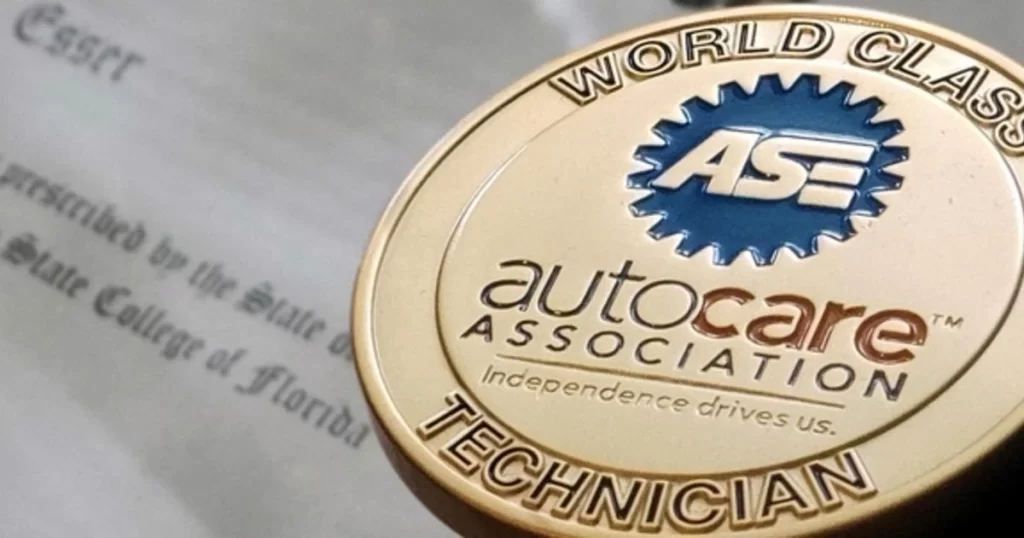
By making informed decisions and choosing certified professionals, you protect your investment and ensure that your car gets the care it deserves.
How to Choose the Right Auto Mechanic
When your car needs repairs or maintenance, finding the right mechanic can feel like a challenge. You want someone who knows what they’re doing and will treat your car well. Below, we’ll break down simple steps to help you choose the best mechanic for your needs.
1. Look for Certifications
One of the best indicators of a skilled mechanic is certification. ASE (Automotive Service Excellence) certification is a reliable standard. It shows that the mechanic has passed tests and has experience working on cars. Additionally, manufacturer certifications are great if your car is from a specific brand, like Toyota. These mechanics are trained to work on specific makes and models, giving them deeper knowledge about your vehicle’s needs.
- ASE Certification: Look for the blue and white ASE logo.
- Manufacturer Certification: Check if they specialize in your car brand.
2. Check Reviews and Recommendations
Online reviews are a helpful resource for finding a good mechanic. Check websites like Google Reviews or Yelp for honest feedback from past customers. Also, asking friends or family members for personal recommendations can lead you to trustworthy professionals. Word of mouth is often a reliable source of insight because people tend to recommend those they’ve had good experiences with.
- Positive Reviews: Look for mechanics with mostly positive ratings.
- Ask Around: Get suggestions from people you trust.
3. Evaluate Experience and Expertise
Experience matters. Mechanics who have been in the business for a long time are likely to have worked on a variety of car problems. This experience helps them diagnose and fix issues quickly and accurately.
Some mechanics also specialize in particular areas like transmissions, air conditioning, or brake systems. If your car needs specific work, a specialist might be a better choice.
4. Transparent Pricing
Make sure the mechanic offers transparent pricing. They should give you a detailed breakdown of the costs before starting the repair. A written estimate can help avoid surprise charges later. Comparing quotes from different shops will give you an idea of what’s fair.
- Ask for an Estimate: Request a clear, itemized estimate before work begins.
- Compare Prices: Don’t go for the lowest price blindly; look for the best value.
5. Warranty and Guarantees
A reputable mechanic stands by their work. Ask about warranties on parts and labor. This guarantees that if something goes wrong after the repair, they will fix it without extra charges. A warranty reflects confidence in their own work.
- Parts Warranty: Make sure they cover parts for a certain period.
- Labor Warranty: See if they offer coverage for the actual work done.
6. Cleanliness and Organization
An organized workshop is often a sign of professionalism. When you visit a mechanic’s shop, take note of its cleanliness and organization. This doesn’t mean the place has to be spotless, but a well-kept workspace reflects the mechanic’s attention to detail. Plus, a messy environment can lead to mistakes.
7. Communication and Customer Service
Your mechanic should explain repairs clearly, using language you can understand. They should be willing to answer any questions you have and keep you informed throughout the process. Good communication ensures you’re comfortable with the service being provided.
- Clear Explanations: A good mechanic will explain problems without jargon.
- Friendly Service: They should treat you respectfully and answer all your questions.
8. Location and Convenience
Location matters too. While a nearby mechanic can be convenient, sometimes driving a little further for better service is worth it. Many mechanics also offer perks like shuttle services or loaner cars to make the process easier while your car is in the shop.
9. Personal Anecdote: My Experience as a Toyota Mechanic
As a Toyota mechanic with over a decade of experience, I’ve seen firsthand how important it is to pick the right shop. Once, a customer came in with a minor issue, but previous shops had given conflicting diagnoses. After running a simple diagnostic test, we found a loose sensor. It was a 10-minute fix, but because the other mechanics weren’t paying attention to details, the customer had been given the runaround for weeks. Trust and communication made the difference for that customer.
Choosing the right auto mechanic can make a huge difference in how well your car performs and how stress-free the repair process is. Look for certified professionals, check reviews, and ensure clear communication. By taking these steps, you’ll feel more confident that your car is in the right hands.
Summary
- Check for Certifications: ASE or manufacturer certifications show expertise.
- Read Reviews: Both online and from people you know.
- Evaluate Experience: Experience is key in diagnosing problems.
- Transparent Pricing: Get clear, written estimates.
- Look for Warranties: Coverage shows confidence in their work.
This ensures your car is repaired properly, without unnecessary headaches.
Services Offered by Auto Mechanics
Auto mechanics provide essential services to keep your car running smoothly and ensure its longevity. Whether you need routine maintenance or complex repairs, understanding the variety of services available can help you take better care of your vehicle. Here’s a detailed breakdown of the common services auto mechanics offer.
1. Routine Maintenance Services
Regular maintenance is the backbone of vehicle care. It helps prevent major problems and keeps everything running efficiently.
- Oil Changes: One of the simplest but most important tasks. It keeps your engine lubricated and prevents overheating. Typically, this is done every 3,000 to 5,000 miles, but consult your vehicle’s manual for the exact recommendation.
- Tire Rotation and Balancing: Rotating your tires every 6,000 miles ensures even wear and extends their life. Balancing is done to avoid vibrations and ensure a smoother ride.
- Brake Inspection: Mechanics will check your brake pads, rotors, and fluid levels. This is crucial for safety, especially if you notice squeaking or reduced stopping power.
- Fluid Checks: Regularly checking engine coolant, brake fluid, and transmission fluid prevents overheating and ensures all parts are running smoothly.
Expert Tip: Always ask your mechanic to check the filters during routine maintenance. A clogged air filter can decrease fuel efficiency.
2. Diagnostics and Repairs
When something seems off with your car, an auto mechanic can help diagnose and fix the issue. Here are common diagnostics and repairs:
- Check Engine Light Diagnosis: This light can indicate many problems, from a loose gas cap to serious engine trouble. Mechanics use specialized tools to identify the exact issue.
- Transmission Repairs: If your car is shifting gears roughly, slipping out of gear, or making strange noises, your transmission may need attention. Transmission repairs can range from fluid changes to a complete rebuild.
- Electrical System Repairs: Issues with your car’s lights, battery, or sensors are typically traced back to the electrical system. Mechanics will run tests to pinpoint the problem.
- Exhaust System Repairs: The exhaust system keeps emissions in check and helps your car run quietly. If you notice increased noise or exhaust fumes, have your system checked.
3. Heating and Cooling System Services
Comfort in your car goes beyond just staying cool in summer or warm in winter. The heating and cooling system also protects the engine from overheating.
- Air Conditioning Service: Regular air conditioning maintenance includes checking refrigerant levels, replacing filters, and fixing leaks. If the system isn’t blowing cold air, it might need recharging or a more detailed inspection.
- Radiator Maintenance: The radiator keeps your engine at the right temperature. A regular coolant flush and inspection of the hoses help prevent overheating.
Expert Anecdote: I once had a customer who ignored a small radiator leak for too long. It led to an engine failure that could have been easily avoided with a simple hose replacement.
4. Suspension and Steering Services
Your car’s suspension system provides a smooth ride, while the steering ensures safe and precise handling.
- Suspension System Repairs: If you feel excessive bouncing, or your car pulls to one side, the suspension may need attention. Mechanics can replace worn shocks, struts, and control arms.
- Wheel Alignment: Proper alignment is essential for tire health and fuel efficiency. Regular alignment checks, especially after hitting a pothole or curb, are necessary to avoid uneven tire wear.
- Power Steering Service: Mechanics inspect the fluid level and condition of your power steering system. If your steering feels heavy or makes noise, you might need a fluid top-up or pump repair.
5. Other Essential Services
Aside from these major areas, auto mechanics provide many smaller but equally important services that keep your car in top condition.
- Battery Replacement: If your battery is over three years old or showing signs of weakness (like slow engine starts), it’s time for a replacement.
- Windshield Wiper Replacement: Clear visibility is crucial for safe driving. Replacing worn wipers is a simple task, but one that should never be ignored, especially during rainy or snowy seasons.
- Belt and Hose Replacement: Mechanics will inspect the belts and hoses during routine checks. A broken belt or cracked hose can cause serious engine damage.
6. Why Regular Maintenance Matters
Regular car maintenance may seem like a hassle, but it saves money and prevents more expensive repairs down the line. Here’s why:
- Improved Fuel Efficiency: A well-maintained car uses less fuel. Clean oil, properly inflated tires, and a clean air filter all contribute to better mileage.
- Increased Safety: A car that’s regularly serviced is less likely to break down unexpectedly or have issues like faulty brakes or worn tires that could cause accidents.
- Higher Resale Value: If you ever plan to sell your car, a well-documented service history will make your car more attractive to buyers.
Expert Insight: One thing I always advise my customers is to keep a log of all services. This helps not only with resale but also ensures you don’t forget when it’s time for the next check-up.
Auto mechanics provide an array of services ranging from simple oil changes to complex transmission repairs. By staying on top of routine maintenance and addressing issues early, you can keep your vehicle running smoothly for years. Building a relationship with a trusted mechanic can help ensure your car gets the attention it needs when it matters most.
Building a Relationship with Your Auto Mechanic
Maintaining a good relationship with your auto mechanic is essential for keeping your car in excellent condition. It builds trust and ensures that your vehicle gets the best care possible. Here’s why this relationship matters and how you can foster it.
1. Why Trust Matters
When it comes to car repairs, trust is everything. A skilled mechanic knows how to fix problems efficiently, but building a relationship allows them to understand your vehicle’s history better. This can help prevent issues down the line.
For example, if you regularly visit the same mechanic, they will become familiar with your car’s quirks. Over time, they can spot problems earlier, which means smaller repair bills for you.
2. Open and Clear Communication
Good communication helps both you and your mechanic. When you explain what’s wrong with your car clearly, it makes their job easier.
- Be specific: Instead of saying, “The car isn’t working,” try, “The car makes a clicking sound when I start it.”
- Ask questions: If you’re unsure about a repair, don’t hesitate to ask. Most mechanics will gladly explain the problem and how they’ll fix it.
- Give feedback: If you’re happy with their service, let them know. If you’re not, share your concerns. This helps improve the relationship and ensures your mechanic knows how to meet your needs.
3. Follow a Regular Maintenance Schedule
Prevention is better than cure, and that applies to your car, too. When you stay on top of regular maintenance, your car will last longer. Plus, it shows your mechanic that you care about keeping your vehicle in good shape.
Basic Maintenance You Shouldn’t Skip:
- Oil changes: Usually needed every 5,000 to 7,500 miles.
- Tire rotations: Helps prevent uneven wear and extends tire life.
- Brake checks: Brakes are crucial for safety, so keep an eye on them.
Tip: Ask your mechanic to remind you of upcoming services. Many shops have systems that can notify you when it’s time for the next checkup.
4. Respect Their Time and Expertise
Mechanics are busy, especially if they’re good at what they do. Always be respectful of their time. Show up for appointments on time and understand that sometimes repairs take longer than expected. Cars are complex, and what seems like a small problem might require extra work to get it right.
Also, trust their expertise. If your mechanic suggests a repair, they’re doing so because they believe it’s necessary. That said, always feel free to ask for a detailed explanation if you’re unsure.
5. Stick with the Same Mechanic
Consistency is key. When you return to the same mechanic, it builds familiarity. They learn your vehicle’s history and are able to track previous repairs. This saves you time, and potentially money, since they won’t have to start diagnosing your car from scratch every time you visit.
Why a Long-Term Mechanic Relationship Pays Off:
- Faster diagnostics: They already know your car’s history.
- Reliable repairs: They have a vested interest in keeping you satisfied since you’re a regular customer.
- Discounts: Long-time customers may get loyalty discounts or perks.
6. Personal Story from a Mechanic’s Perspective
After 13 years as an auto mechanic, I can tell you that the best relationships I’ve built with customers have been long-term ones. One customer, in particular, comes to mind. Over the years, I’ve seen his vehicle through countless road trips, cold winters, and even a few fender benders. Because we’ve built trust, he listens to my recommendations, and I’ve been able to help him avoid costly repairs. It’s a win-win. He keeps his car in great shape, and I get the satisfaction of knowing I’ve provided the best service possible.
7. Conclusion: Building Trust Takes Time
Building a strong relationship with your auto mechanic takes time, but it’s worth it. You’ll get better service, save money, and have the peace of mind that comes from knowing your car is in good hands.
Key Points:
- Communicate clearly and ask questions.
- Stick with the same mechanic for better service.
- Follow regular maintenance to prevent bigger issues.
- Show respect for their time and expertise.
With a good relationship, your mechanic becomes more than just a service provider—they become a trusted partner in keeping your car on the road.
Maintaining Your Car’s Health
Taking care of your car is essential if you want it to last. Regular maintenance keeps your vehicle in good shape, prevents costly repairs, and ensures it runs smoothly. Let’s break down some key points you need to know.
Importance of Regular Maintenance
Cars, like any machine, need care. Simple tasks like oil changes or checking the tire pressure can make a big difference in how long your car lasts. When you skip these, small problems can grow into larger, more expensive issues. Regular maintenance also helps to keep your car safe. It can prevent things like brake failures or engine problems that could cause accidents.
Key Maintenance Tasks
There are a few basic things that everyone should keep an eye on:
- Oil Changes: This is one of the most important tasks. Fresh oil helps your engine work smoothly. Dirty oil can cause parts to wear out faster.
- Tire Care: Keep an eye on tire pressure and rotate your tires regularly. This helps with safety and can even improve fuel efficiency.
- Brake Inspections: Make sure to check your brakes. Worn-out brake pads can lead to longer stopping times, which is dangerous.
- Battery Health: Car batteries usually last about 3-5 years. Check for signs like slow starting or dim headlights to know if yours needs replacing.
How Often Should You Perform Maintenance?
You don’t have to be a mechanic to keep your car in top condition. Just follow the manufacturer’s maintenance schedule. Most cars come with a manual that tells you when to get things checked. Typically, oil changes are needed every 5,000 to 7,500 miles, but that can vary depending on your car and how you drive. Tires should be rotated every 6 months. Checking your brakes and battery once or twice a year is also a good idea.
Tips from an Expert
From my 13 years of experience working as an auto mechanic, I’ve seen many common mistakes that car owners make. Here are some expert tips that could save you time and money:
- Don’t ignore warning lights: If you see the check engine light or any other warning light, don’t ignore it. These lights are there to tell you that something is wrong. It might be a minor issue, but it could turn into a major problem if left unchecked.
- Always use quality parts: When it comes time for repairs, always use high-quality or OEM parts (Original Equipment Manufacturer). Cheaper parts can fail quickly, causing more problems down the road.
- Check your fluids regularly: This includes not just oil but also coolant, brake fluid, and transmission fluid. Low or dirty fluids can cause serious damage.
Common Maintenance Mistakes
Even though keeping up with your car’s maintenance is simple, many people make the same mistakes:
- Skipping oil changes: This is the number one mistake. It’s easy to forget, but skipping oil changes can severely damage your engine.
- Not checking tire pressure: Low tire pressure can lead to blowouts or reduced fuel economy.
- Ignoring minor repairs: That small sound or vibration you notice could mean something is wrong. Fixing it early can prevent bigger problems later.
Here’s a quick checklist to follow for regular car maintenance:
- Check oil level and change as needed
- Check tire pressure and rotate tires every 6 months
- Inspect brake pads and replace if worn
- Test battery health and clean terminals
- Replace air filters and spark plugs as needed
Why You Shouldn’t Ignore Your Car’s Health
It’s easy to forget about your car’s maintenance when everything seems to be running fine. But problems can develop quietly over time. A slight dip in performance or a strange noise can signal something is wrong. If you don’t address small issues right away, they can become big ones. For example, a minor coolant leak can turn into a costly engine overheating problem if not fixed.
Personal Anecdote:
I once had a customer who didn’t change their oil for over a year. They drove in with engine noise, and by then, the engine was so damaged that it needed to be replaced. A simple $50 oil change could have saved them thousands of dollars.
Summary of Key Points
- Regular maintenance helps avoid major problems.
- Follow the manufacturer’s maintenance schedule for your vehicle.
- Pay attention to warning signs like strange noises or dashboard lights.
- Keep fluids, tires, and brakes in good condition.
Maintaining your car’s health is not only about avoiding breakdowns, but also about safety. Take the time to perform regular checks and see a mechanic when needed. It will save you money and ensure that your car stays on the road for many years to come.
Common Auto Repair Myths Debunked
When it comes to car repairs, there are a lot of misconceptions that can confuse car owners. These myths can sometimes lead to costly mistakes or unnecessary worries. In this article, we will debunk some of the most common auto repair myths, giving you the facts from an expert perspective.
Myth 1: You Need to Change Your Oil Every 3,000 Miles
This advice used to be true years ago, but not anymore. Modern cars and synthetic oils can go much longer between oil changes. Most vehicles today can last between 5,000 to 7,500 miles before needing an oil change. Always check your car’s owner’s manual for the manufacturer’s recommendation. Ignoring this could lead to unnecessary expenses and wasted oil.
Expert Tip:
If you drive in extreme conditions, like very hot or cold climates, more frequent oil changes may still be needed. Consult a trusted mechanic if you are unsure about your specific driving habits.
Myth 2: Premium Gas is Always Better for Your Car
Unless your car specifically requires premium fuel, using regular unleaded gas is perfectly fine. Premium fuel doesn’t provide extra benefits unless it’s required by your car’s engine design. High-performance cars with turbocharged engines may require premium fuel, but most standard vehicles run just as well on regular gas.
- Fact: Using premium fuel in a regular car won’t improve performance or mileage.
- Tip: Save your money by following your manufacturer’s fuel recommendations.
Myth 3: Warming Up Your Car Before Driving in Cold Weather is Necessary
It’s common to hear that you need to warm up your car before driving, especially in winter. However, modern engines don’t need to be warmed up for long periods. In fact, idling for too long wastes fuel and increases emissions. Start your car and drive gently; the engine will warm up more effectively that way.
True or False:
- False: Long idling helps your car in cold weather.
- True: It’s better to drive gently after starting.
Myth 4: All Four Tires Need to Be Replaced at the Same Time
Not necessarily. If only one or two tires are worn out, you can replace them individually. However, you should match the new tires with the existing ones in terms of size, tread, and speed rating. If you replace only two tires, put them on the rear axle for better stability.
Quick Facts:
- Replace tires when the tread depth is too low.
- Uneven wear can indicate alignment issues.
Myth 5: You Can Fix a Cracked Windshield Yourself
Many people think they can repair a windshield crack with a DIY kit. While these kits may provide a temporary fix, they are not a long-term solution. Cracked windshields can worsen over time and compromise your visibility and safety. A professional repair is always recommended for a proper, lasting fix.
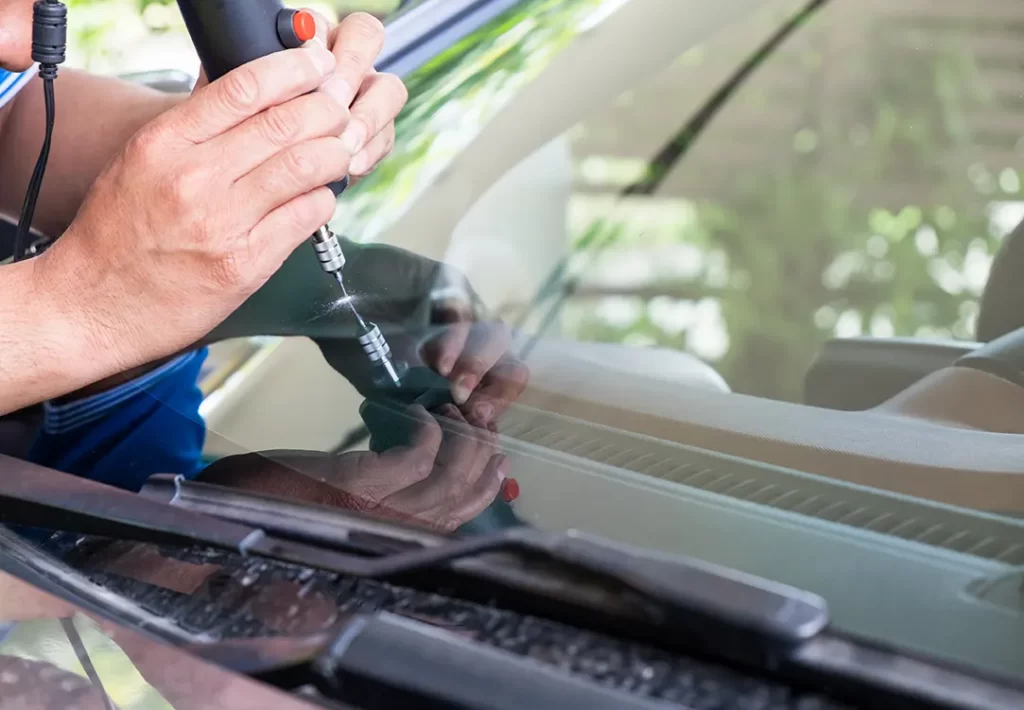
Myth 6: Disconnecting the Battery Resets the Check Engine Light
This is a common trick that doesn’t work in the long run. Disconnecting the battery might clear the check engine light temporarily, but it doesn’t solve the underlying problem. The light will likely come back on if the issue remains. Instead, use a diagnostic tool to find out what’s wrong or take your car to a professional mechanic.
What You Should Do:
- Use an OBD-II scanner to identify the issue.
- Get it fixed before it leads to more serious problems.
Myth 7: Skipping Routine Maintenance Saves Money
Skipping regular maintenance might seem like a way to save money, but it often leads to bigger and more expensive repairs later. For example, not changing your oil can cause engine damage over time. Routine tasks like oil changes, tire rotations, and brake inspections are essential for keeping your car running smoothly.
- Always stick to the recommended maintenance schedule.
- Preventive care is cheaper than fixing a major issue.
Myth 8: You Should Always Go to the Dealership for Repairs
Many people believe that only a dealership can properly repair their car, especially if it’s under warranty. However, independent mechanics can often provide the same level of service at a lower cost. As long as the shop is ASE-certified, they can perform repairs without voiding your warranty.
Consider This:
- Dealerships can be more expensive due to overhead costs.
- A good local mechanic can offer personalized service at a better price.
Conclusion
It’s easy to fall for these common auto repair myths, but now you have the facts. Staying informed and relying on professional advice will help you avoid unnecessary repairs and keep your car in top condition. When in doubt, always consult your mechanic and your vehicle’s owner’s manual.
By debunking these myths, you can drive with more confidence and save money on unnecessary repairs.
Understanding the Role of Auto Mechanics
Auto mechanics are professionals who keep our vehicles running smoothly. They specialize in diagnosing, repairing, and maintaining cars. When your vehicle shows signs of trouble, it’s the auto mechanic who comes to the rescue. But what exactly do these skilled technicians do? Let’s break it down.
Diagnosing Car Problems
Mechanics use diagnostic tools and their expertise to find the root cause of a car issue. This can be anything from engine problems to electrical faults. They rely on both advanced tools and good old-fashioned knowledge to figure out what’s wrong. Once they know the problem, they can plan the best way to fix it.
Repairing and Replacing Parts
Once the problem is identified, mechanics repair or replace faulty parts. This could involve simple tasks like replacing a car battery, or more complex jobs such as rebuilding an engine. Their goal is to get your car back on the road as quickly and safely as possible.
Providing Regular Maintenance
Maintenance services like oil changes, tire rotations, and brake inspections are essential. Auto mechanics help prevent larger issues by keeping your car in good shape. Regular checkups extend the lifespan of your vehicle, saving you from costly repairs in the future.
Specializations in Auto Mechanics
Some mechanics specialize in specific areas:
- Engine specialists work on improving or repairing car engines.
- Transmission mechanics fix issues with gear shifting.
- Brake system experts ensure your car stops properly.
- Electrical specialists handle problems with wiring or the car’s computer system.
Certifications and Training
Mechanics must stay updated with the latest technologies. Most experienced mechanics are ASE-certified, which shows they’ve passed rigorous tests and meet industry standards.
How to Choose the Right Auto Mechanic
Choosing a mechanic can be overwhelming. With so many options, it’s important to select a professional you trust. Here are some tips to help:
1. Check Certifications and Qualifications
Make sure the mechanic is ASE-certified or has manufacturer-specific certifications. This proves they have formal training and are up-to-date with modern car systems.
2. Read Reviews and Ask for Recommendations
Ask friends or family for recommendations. Also, check online reviews on trusted platforms like Google or Yelp. Pay attention to both positive and negative feedback. It helps you know what to expect.
3. Compare Prices and Estimates
Get estimates from multiple mechanics. A good mechanic should offer transparent pricing with a detailed breakdown. Avoid those who can’t explain the costs.
4. Ask About Warranties
Check if they offer a warranty on their work. It’s a good sign they stand behind their repairs and service.
Services Offered by Auto Mechanics
Mechanics offer various services to keep your car running smoothly. Here’s a list of the most common ones:
- Oil changes: Keep your engine lubricated.
- Tire rotations: Prevent uneven wear.
- Brake maintenance: Ensure your car stops safely.
- Check engine light diagnosis: Find out why your dashboard is flashing warnings.
- Transmission repairs: Fix issues with shifting gears.
- Battery replacement: Swap out dead batteries.
Expert Tip: Build a Strong Relationship with Your Mechanic
It’s a good idea to stick with one mechanic once you find one you trust. They will understand the history of your car and can provide better long-term care. Keep open communication. Ask questions if you don’t understand something. A good mechanic will explain everything clearly.
Regular Car Maintenance Matters
Cars need regular care to run smoothly. Simple tasks like checking your oil, rotating tires, and testing your battery can save you from big problems down the road. Always follow your car’s maintenance schedule.
Here are some tips:
- Check your engine oil every month.
- Rotate your tires every 6 months or 6,000 miles.
- Inspect your battery for corrosion or leaks.
- Check brake fluid regularly.
Common Auto Repair Myths (Debunked)
There are many myths about car maintenance. Let’s bust some of them.
- Myth: You need to change your oil every 3,000 miles.
- Fact: Many modern cars can go 5,000-7,500 miles before needing an oil change. Check your owner’s manual.
- Myth: Premium fuel is better for all cars.
- Fact: If your car doesn’t require premium fuel, it won’t make a difference. Save your money!
Conclusion
Auto mechanics are essential for keeping your vehicle in top condition. Whether diagnosing problems, repairing parts, or offering advice, they play a critical role in ensuring your car is safe and reliable. When choosing a mechanic, prioritize qualifications, trust, and transparent pricing. Regular maintenance can save you from bigger issues and costly repairs. Don’t wait for something to go wrong—visit your mechanic regularly to keep your car in great shape.
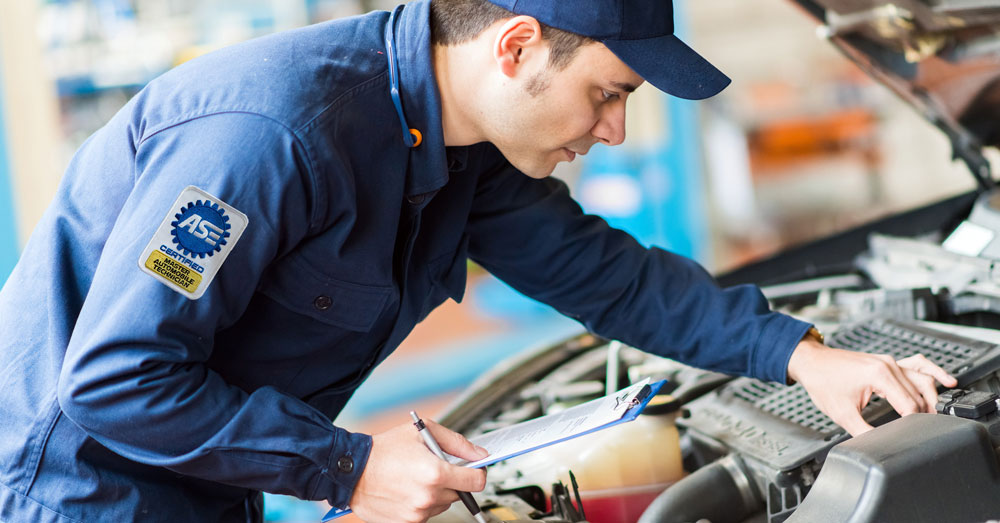
Take care of your car, and it will take care of you!
Author: Jordan Miles
Jordan Miles – Senior Automotive Editor
Jordan Miles, a journey through the world of automotive marvels. Based in: Minneapolis, Minnesota, USA
About Me
Hello, I’m Jordan Miles! I’ve been in love with the roar of engines and the sleek lines of automotive design since I could remember. With over a decade of experience in automotive journalism, I bring you the latest insights, deep dives into car technology, and spotlight the most exciting trends in the world of automobiles. From the heart of the USA, join me on a journey to discover the cars that set our pulses racing and the future models that promise to revolutionize our roads.
Contact Information
Email: jordan@oilforcar.com
Twitter: https://twitter.com/jordan_mil13743/
Facebook: https://www.facebook.com/miles.jordan.89
Topics of Interest
Electric and Hybrid Innovation
American Muscle Cars
Classic Car Restoration
Future Automotive Technologies
Memberships
Automotive Press Association (APA)
Electric Vehicle Association (EVA)
More About Jordan
Short Bio: A renowned automotive expert and a fixture at auto shows across the country, Jordan brings a blend of technical knowledge and a passion for storytelling. Education: B.S. in Mechanical Engineering, with a focus on Automotive Design from MIT. Qualifications: Certified Automotive Reviewer by the National Auto Critics Association (NACA). Languages: English (Native), Spanish (Fluent) Previous Roles:
Test Driver for Performance Car Magazine
Consultant for Car Restoration TV Shows
Engineer Intern at Tesla Motors
Fun Fact: Once restored a 1967 Shelby GT500 with nothing but a workshop manual and a lot of determination.
Interactive Features
Ask Jordan: Have a burning question about your favorite car? Drop me a line, and let’s talk torque and horsepower.
Jordan’s Quotes: “The perfect car is a fusion of art, technology, and the freedom of the open road.”
Reader’s Corner: Share your thoughts on the latest reviews and join the discussion!
Featured Content
Newest Articles:
The Resurgence of the American Muscle Car
Electric Dreams: How EVs are Charging into the Mainstream
Highlighted Content:
Behind the Wheel: An In-depth Review of the 2024 Mustang
The Evolution of Safety Features in Modern Cars
Recommended Reads:
A Week with the Tesla Roadster: The Future is Now
Under the Hood: The Mechanics of Autonomous Vehicles
Multimedia Spotlight:
Podcast: “Revving Up” – Weekly discussions on car culture and new models
Video Series: “Garage Tours” – A sneak peek into America’s most fascinating car collections
Editorial Team & Collaborations
Frequent Co-authors:
Alex Rivera, our Electric Vehicle Expert
Maria Chen, Classic Car Enthusiast and Columnist
Editorial Staff Overview: A dedicated team bringing you the most accurate and engaging car reviews and news. Editorial Guidelines: Commitment to unbiased reporting and in-depth analysis of automotive models.
Stay Connected
For the latest car reviews, industry insights, and a look at automotive history through the lens of today, keep your engines revving with Jordan Miles at oilforcar.com.

